‘A Few Notes on Bernard Rudofsy’s Thought and Work’ by Andrea Bocco (Architect, Social Activist, Critic)
Febraury 9th, 2024
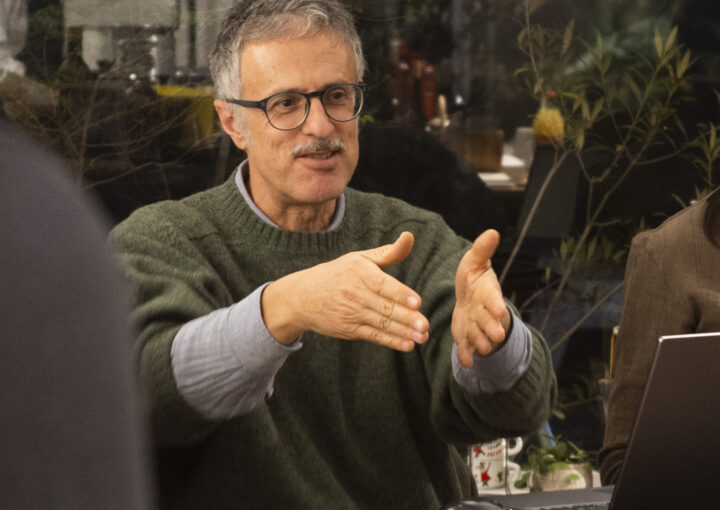
バーナード・ルドフスキーは1905年に生まれ『建築家なしの建築』『人間のための街路』『さあ横になって食べよう』など、世界中に影響を与えた著作や展覧会で知られる建築家である。生活を人間の生から問い直したルドフスキーの、建築にとどまらない多様な活動を未発表の図版とともに体系的な伝記としてまとめたイタリア人建築家、アンドレア・ボッコ氏をゲストに招き、ルドフスキーの思想と作品、今なお引き継がれるべきその可能性を紐解く(HLA 17 フライヤーより抜粋)。
Bernard Rudofsky, born in 1905, is an architect known for his influential books and exhibitions around the world, including “Architecture Without Architects,” “Streets for People,” and “Now I lay me down to eat. Andrea Bocco, an Italian architect who has compiled a systematic biography of Rudofsky, whose diverse activities extend beyond architecture, by questioning life from the perspective of human,. Mr. Bocco witll unravel Rudofsky’s ideas and works and their potential to be carried on even today.
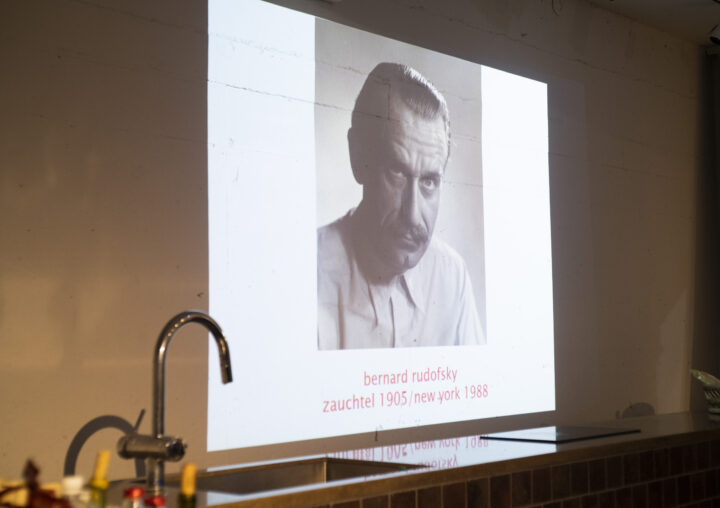
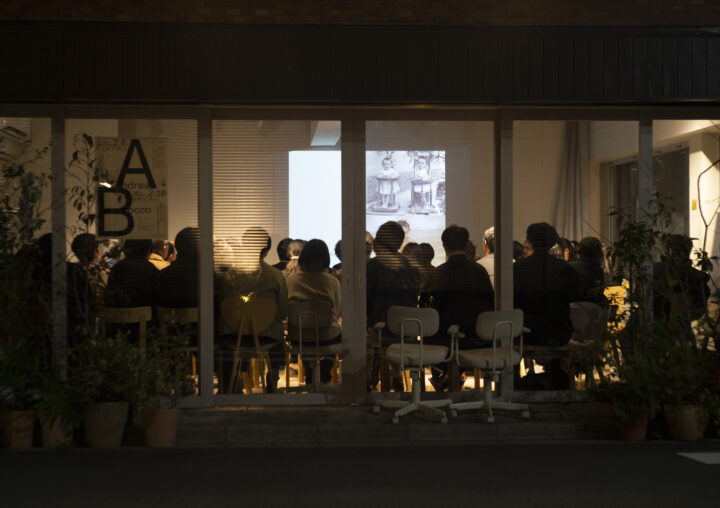
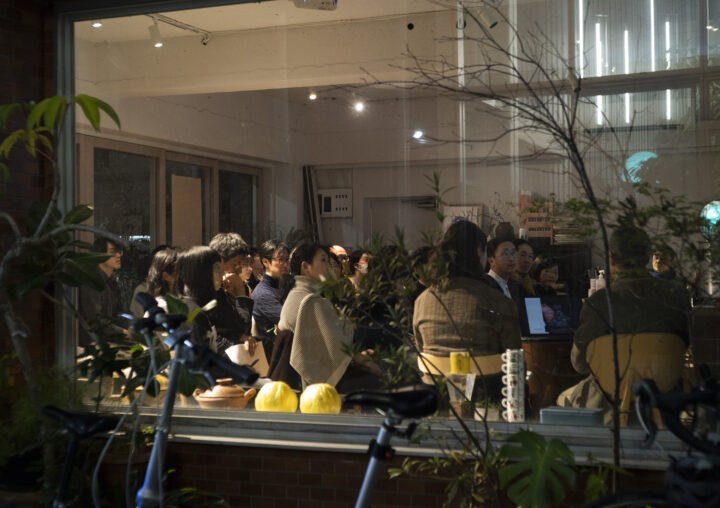
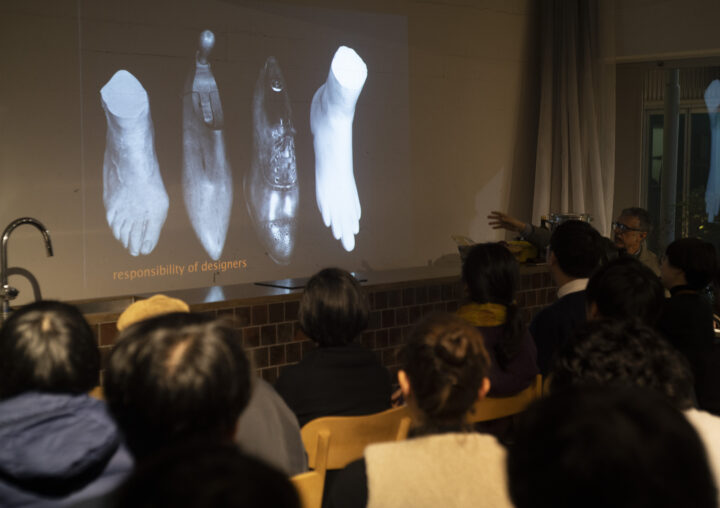
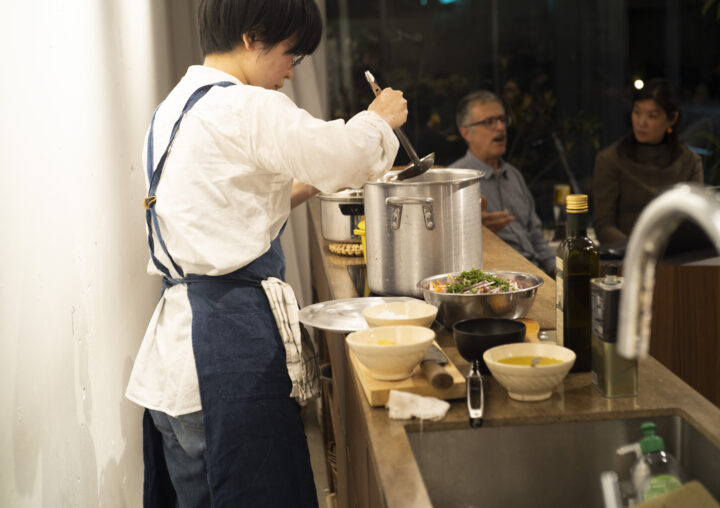
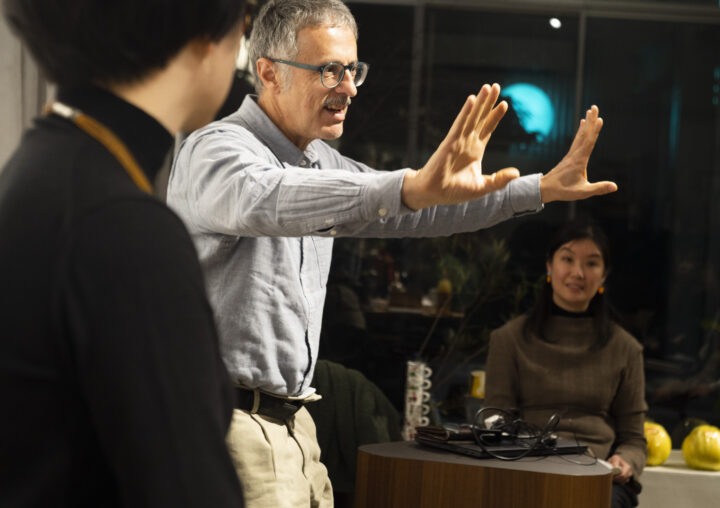
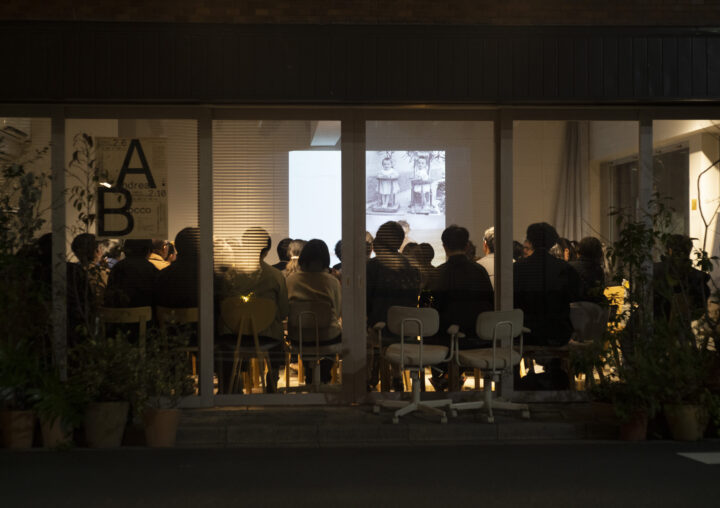

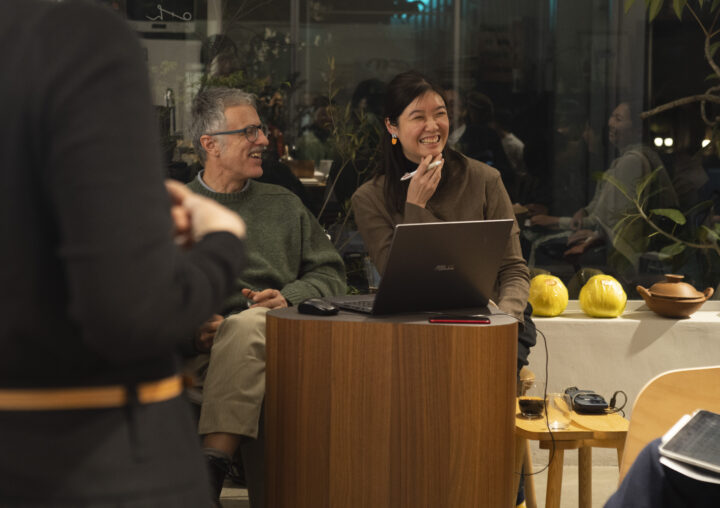
「建築家なしの建築」で知られているルドフスキーの思想を建築との関係性のなかで考える。人間として生きることを尊重し、贅沢をするわけではなく生活の質をあげるために、五感を使うことを考えたルドフスキーのリサーチの創造性たるや。レクチャーの後の食事は、Cimiの向井知さんによる雑穀や鹿肉を中心としたリジェネラティブ料理。大地をあるがままの状態に戻すことに、食べることで参加する試み。レクチャーの内容が縁を描いて胃袋に治ったよう。
What a creative research of Rudofsky, based on the idea of living with five senses to increase the quality of life, not just by consuming and replacing the comfort with buying things. After lecture, everyone have participated the natural circulation by act of eating the millet and venison, the regenerative cuisine by Tomo Mukai from Cimi. It was as if thought of Rudfsky turned into dish, was eaten and digested into their stomach.
Photo: Yurika Kono
建築事務所o+hが拠点とする日本橋浜町LAB1階にて不定期で行っている勉強会。様々なトピックに対して、創造的な方法で向き合っている世界中のアーティスト、デザイナー、建築家、編集者、キュレーターなどの作り手とつながり、彼らのプロジェクトとそれに至るまでのプロセスを共有する。普段、専門分野で分断されがちな視野を広げることで、社会と創造的に関わる姿勢について様々な立場の人々が何度も学び直すことができる場所を目指している。
Hamacho Liberal Arts is a study group taken place at Hamacho LAB. 1F, Tokyo, where the architectural office o+h is based. By having the opportunity to talk with people who create the values, such as artist, designer, architects, editor, curator etc., and share the process of their project, it aim to broaden the view that is otherwise being limited by their specialities and become an opportunity to unlearn and relearn for people in all levels of social practice.
